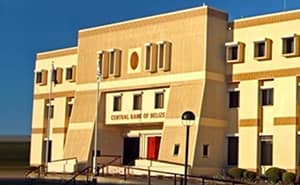
Belize’s financial system is going through one of the most complicated moments of its history, between the abrupt closure of two international banks and the heavy accusations of corruption against the Governors of the Central Bank and for the inefficiency of its courts.
At the end of 2017, a scrutiny of Belize’s Central Bank detected supposed irregularities in the Choice Bank that violated provisions of international banking laws. Later, this caused the Central Bank decided to revoke Choice’s license and designated a “liquidator”, who would be in charge of distributing the bank’s assets among the account holders. One of the first measures of this “liquidator” was to dismiss all of Choice’s personnel and to name, in their place, people that were close to the government to “conduct a more in-depth investigation of the activities undertaken by the bank.”
The action of the “liquidator” was widely criticized, not only by the account holders but also by the international community since the nexus between the Governor of the Central Bank, Joy Grant, and the Prime Minister, Dean Barrow, who is also the small country’s Minister of Finance, impeded the distribution process of said assets from being completely fair.
Faced with so many violations, the Choice Bank opted to present a malpractice suit against the Central Bank; the Belize courts showed themselves as being inefficient and that they act under the control of the political and economic power. Up to now, the liquidator has approved the reimbursement of 53% of the deposits declared in the accounts, however, it hasn’t completed all of the payments.
After that, another scandal hit Belize’s banking system. The Atlantic International Bank Limited, the main offshore bank licensed in Belize that has worked in the country for 18 years was accused by the United States federal Trade Commission of participating in the diversion of millions of dollars belonging to American citizens who wanted to build houses in the area of the Sittee River natural Reserve. Atlantic International denied at all times of ever having participated in the real estate fraud; however, its defense wasn’t accepted and found itself forced to close their doors.
Faced with these “problems”, the European Union and the Organization for Economic Cooperation and Development (OECD) decided to put Belize on their blacklist for assumed tax evasion practices carried out by offshore businesses, like Atlantic International.
The disappearance, in just 10 months, of two of the most important offshore banks operating in Belize doesn’t seem to overly concern the authorities. According to Governor Grant, the country’s financial system was strong. “We, the Central Bank, will do everything possible to be assured that we adopt the correct decisions at all times.” However, what happened with the supposed supervision of the Central Bank?
This isn’t the criterium of the lawyer Giovanni Caporaso. The specialist in offshore banking affirms that Belize’s entire banking system died because of the offshore operations. “No one will trust a bank in Belize anymore, after what happened,” asserts the expert.
